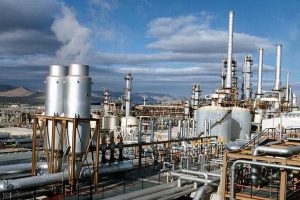Viscosity Grade Bitumen: What is viscosity bitumen + advantages
For producing hot mix asphalt, road constructors use VG bitumen. Viscosity bitumen is a type of bitumen with many uses. This bitumen is thermoplastic which makes it flexible in warm climates and hard and fragile in cold regions. Viscous bitumen is also thick and adhesive. Its adhesion allows it to combine with other materials that create durable surfaces for the roads. Manufacturers produce viscosity bitumen at refineries distillation towers using aeration with vacuum batuum. In this article, we will explain the different types of VG bitumen, its definition and measurement.
What is viscosity bitumen?
Various bitumen products have different gradings and many applications in making asphalt, road pavings and concrete sidewalks. Manufacturers produce viscosity bitumen by applying aeration through a vacuum batuum at the distillation towers. Viscosity grade bitumen (also called VG bitumen) has its most uses in building hot mix asphalt.
(Click to find out about Bitumen in Road Construction.)
VG bitumen is also thermoplastic which makes it fragile and unyielding in cold air and soft and flexible in warm weather. That is why mixing it with other materials produces a road surface with more longevity.
(Click to find out about Natural Bitumen.)
The viscosity of bitumen is an important factor in choosing the right product for road construction. Furthermore, because of the exact grading of VG bitumen, its products are more prominent than penetration bitumen.

History of viscosity grade bitumen
The history of viscosity bitumen is associated with evolutionary methods of road construction and attempts to improve road longevity and the quality of its surface. At first, the road constructors used normal bitumen to build roads. However, in the 20th century, they began using petroleum-based bitumen for road construction.
(Click to learn more about Penetration Grade Bitumen.)
In that era, the traditional methods for grading bitumen were based on bitumen’s penetration degree. In this method, the experts determined if the bitumenwas soft or hard, measuring the penetration depth of a standard needle when it penetrated bitumen under specific conditions. However, as the demand for constructing more advanced roads increased, this method proved to be incomplete.
(Click for information on bitumen price.)
In fact, penetration bitumen cannot predict bitumen’s performance at high temperatures that result in road grooving, cracks and dilapidation. As a result, Road engineers conducted more research on grade bitumen products and prioritized determining the viscosity of bitumen.

The introduction of viscosity bitumen in the late 20th century
At the end of the 20th century, the concept of grading bitumen products based on their viscosity was introduced. This concept provided a more comprehensive understanding of bitumen’s behavior at different temperatures. Based on this grading system, the experts measured the bitumen’s viscosity at 60 centigrades and could effectively predict the materials’ behavior at higher temperatures.
Therefore, categorizing a bitumenbased on its viscosity replaced the bitumen grading method by penetration. Today, the use of VG bitumen products is known and acceptable throughout the whole world.
(Click for more information about Pasargad Oil bitumen.)
Various VG bitumen gradings such as VG10, VG20, VG30and VG40have better flexibility in terms of use. As a result, road engineers can choose the most suitable type of bitumenaccording to their projects’ requirements and local weather.
Using VG bitumen improves road performance and durability. Therefore, many consider the introduction of viscosity bitumen an important point in road construction.

Viscosity grade bitumen’s chemical formula
No bitumen product has an exact formula, because bitumen is a complex mixture of hydrocarbons. That is why bitumencomposition is different for every product and includes thousands of different molecules. Therefore, bitumen products are mainly composed of carbon hydrogen but also have oxygen, nitrogen and sulfur in them.
(Click to know the Bitumen 60/90.)

Viscosity grade bitumen composition
As we explained in the previous paragraphs, VG bitumen is a complex mixture with multiple hydrocarbons. That is why there is no exact common formula for all bitumen products. But they have some ingredients in common that are categorized as:
It is worth mentioning that the balance between these components affects the physical traits of viscosity bitumen. Different bitumen products have different compositions. Also, various manufacturing processes can affect this balance.
(Click for more information about Colored Bitumen.)

Saturants
Saturantsare the most stable compounds that are mainly made of linear or chain hydrocarbons.

Aromatics
Aromaticsare flat chain hydrocarbons that help with bitumenresilience and its ability to reform after deformation.

Resins
These are flat polar hydrocarbons that play an important part in the adhesive qualities of the bitumen. Resins cause the bitumen to stick to the aggregates in asphalt mixtures.

Asphaltene
Asphaltenesare components with the heaviest molecular weight and are mainly composed of dense multi-chain aromatic hydrocarbons. They also include ingredients such as sulfur, nitrogen and oxygen which cause the bitumento harden.

Production of viscosity grade bitumen
The process of producing VG bitumen has multiple steps, including petroleum extraction, refinement and measuring the VGof bitumen. Therefore, in this section, we will explain the overall process of viscosity bitumen production.
Remember that bitumen specifications can be different based on the petroleum quality and the products’ desired properties.

Extracting Petroleum
The first step in viscosity bitumen production is extracting petroleum from petroleum wells. Petroleum is composed of different hydrocarbons including heavy portions of bitumen. Manufacturers use petroleum to produce bitumen products like VG bitumen.

Petroleum distillation
After manufacturers extract petroleum, they place it in a refinery and expose it to atmospheric distillation. This process warms the petroleum and causes it to evaporate and condense at different portions and different temperatures. Lighter portions of petroleumincluding gasoline will be expunged at lower temperatures, but the heavy bitumenwill sediment at the bottom of the container.

Vacuum distillation
Manufacturers expose the heavy petroleumleft after atmospheric distillation to the vacuum distillation process. This process expunges lighter abortions of petroleum without causing heat cracks in the bitumen.

Air blowing
For viscosity bitumen to have desirable traits, manufacturers expose the vacuum residue to the air-blowing process in which warm air passes through the residue. This method causes a certain reaction which increases the physical and functional traits of bitumen and allows it to be durable in different weather conditions.

Grading bitumen’s viscosity
At the final stage of production, the manufacturers grade bitumenbased on its viscosity. First, they heat the bitumen to standard 60 Celsius. Then, they measure its viscosity. Based on the degree of bitumen viscosity, VG bitumen products have different categories such as VG10, VG20, VG30 and VG40.

Types of viscosity grade bitumen
Understanding and choosing a bitumenwith the right viscosity is very important in road construction and maintenance. Manufacturers categorize these hydrocarbon materials based on their viscosityat 60 Celsius. Their consistency is also very important in determining their uses. The most common viscosity bitumen grades are VG10, VG20, VG30and VG40.

VG10 and VG20
VG 10 bitumen has a lower viscosity. Therefore, it is more suitable for applying in cold regions. Additionally, it is flexible in lower temperatures. However, VG20is mainly applicable in warm climates and is a standard choice for most road construction projects.
VG30 and VG40
On the other hand, in places with higher ambient temperatures, VG30and VG40are more ideal bitumen products. These bitumen grades are more stable at higher temperatures and prevent road deformation in high-traffic roads. That is why VG40 bitumen products are often useful in high-traffic roads at high temperatures.

The Importance of choosing the bitumen with the right viscosity
It is best to always choose a bitumenpure carat based on regional climate and traffic load. You should always remember that pavinglongevity and performance are heavily dependent on this choice. That is why having a comprehensive understanding of VG bitumen helps you make informed decisions for choosing the best bitumen product for your construction projects.
For choosing the right bitumen for roads and their increased longevity, always consider its use according to the local environment and traffic.

The pros and cons of using viscosity grade bitumen
Today, VG bitumen products are more in use than penetration bitumen because experts test them carefully in two stages. First, they test the penetration degree of bitumenat 25 Celsius (which is the normal temperature). However, since this testing is unreliable in warm temperatures, experts will test the bitumen’s viscosity at both 60 and 135 Celsius.
The results of this testing show that VG bitumen can endure 25 to 135 temperatures that cause road fatigue cracks in construction. Furthermore, the temperature sensitivity might also be a result of a bitumen viscosity test.

Saving time and expenses
Producing VG bitumen can save time and money because the number of tests for determining bitumen’s viscosity is significantly lower than the tests performed for bitumen penetration. For instance, viscosity bitumen test has only 7 steps. On the other hand, specifying a bitumen’s penetration degree takes place during 14 steps.

Viscosity grade bitumen is more durable
Pavingsmade of VG bitumen perform better because the amount of viscosity at 135 Celsius gives us a general idea about the bitumen’s mixture and compression. Consequently, the paving’s longevitywill improve.
Using viscosity bitumen is suitable in regions with high traffic.

What are viscosity bitumen properties?
Manufacturers categorize VG bitumen products by their unique physical and chemical traits that make them usable for different applications, especially in road construction. In this section, we will explain some of these key traits.
Special traits of VG bitumen might be different among its various grades. For example, VG10, VGA 20, VG30 and VG40 all have different levels of viscosity that affect their performance under certain conditions. These traits turn VG bitumen into a very versatile and useful substance for construction projects.

What is the viscosity of bitumen?
As is evident from the name, viscosity bitumen is the bitumen’s degree of viscosity and significantly impacts the bitumen’s performance. Bitumen’s viscosity measures its resistance to deformation and flow. Higher VG bitumen grades are more resistant to deformation and are ideal for use at higher temperatures or heavy traffic roads.

Temperature sensitivity
Manufacturers produce viscosity bitumen in a way that it has good performance in a wide range of temperatures. For instance, at lower temperatures, VG bitumen will remain flexible to resist cracking. However, it is also durable at high temperatures to resist grooving.

Adhesion of viscosity grade bitumen
Bitumenhas a strong adhesive trait that allows it to stick to aggregates and asphalt mixtures effectively. This trait is very important in road construction because it makes sure that the surface of the road remains firm in different circumstances.

Durability
Viscosity grade bitumen is well known for its durability and can withstand various weather conditions and heavy traffic loads. As a result, viscosity bitumen is a durable substance in road construction and other uses.

Resistance to water
VG bitumen is resistant to water. That is why it is an effective substance in waterproofing applications. Furthermore, viscosity bitumen’s resistance to water helps to protect the surface of the roads against any water damage.

Elasticity
Bitumenis elastic which allows it to regain its original form after deformation. This trait is particularly useful against high and heavy traffic roads.

Viscosity grade bitumen uses
VG bitumen is a type of bitumen that road constructors mainly use for building roads. Therefore, it is suitable to apply in road constructions and higher quality asphalt pavings. But what exactly are the uses of viscosity bitumen products?

VG10 bitumen appliances
VG10has a penetration degree of 80/100 and is a good choice to cover the surface of roads. Additionally, it is a necessary component in producing bitumen emulsion and other modified bitumen products. VG10 is a suitable replacement for penetration grade 80/100 bitumen.
Furthermore, using this bitumenhas its advantages. For example, you can apply VG10below 30 Celsius and it has an absolute viscosity of 800. Also, compared with VG30and VG40, it has a better penetration value.

What are the viscosity grades of asphalt: VG20 uses
VG20 bitumen is a good product to use in pavings at lower temperatures and high regions. You can use this bitumen in the average temperature of 30 to 37 Celsius.

What is meant by VG 30 bitumen?
VG30is a component in producing extra heavy bitumen pavings. These pavings have to endure heavy traffic. Therefore, road constructorsoften use VG30 products to build roads. Overall, road construction, buildings, insulations, and liquid products are the common fields that use VG30. VG40is also suitable to apply in temperate climates and is a good replacement for using 60/70 bitumen.

Bitumen vg 30 specifications: VG30 benefits
Using VG30has some benefits. For example, you can use it at higher temperatures, because it has good durability. It also has high viscositywhich is more suited for use with clay. Additionally, road constructors also use it in humid areas.

VG bitumen uses: VG40 appliances
Road constructors usually use bitumenwith a penetration degree of 40/50 in high-traffic areas such as intersections, highways, toll roads and truck parking lots. This type of bitumenhas high viscosity. Therefore, it is good to use on roads with heavy traffic and areas that are exposed to high tensile strength loads. VG40 is also a good replacement for 40/50 and 30/40 penetration degree bitumen.

Benefits of using VG40
Using VG40 bitumen has some benefits. For instance, it can endure temperatures higher than 40 Celsius and has an absolute viscosity of 3200. VG40 is also an ideal choice for use in building high-traffic roads.

Consistency of viscosity grade bitumen
Consistency is a key feature in viscosity bitumen that turns it into a suitable substance to construct roads, build damp Insulations and other infrastructures. However, bitumen’s consistency depends on different factors including its grading, storing conditions, etc which we will explain below.
If used properly, VG bitumen is durable as a long-term solution to apply on roads to protect them against daily corrosion and rupture. It can also perform better in different weather conditions and high traffic.

Bitumen grading
Higher viscosity bitumen products like VG30 and VG40 are more durable against groovingand high temperatures. They are also flexible at lower temperatures which makes them more durable. This resistance is especially useful in warm regions with very heavy traffic.

The conditions of using viscosity grade bitumen
Viscosity bitumen durability considerably depends on environmental conditions and the roads’ traffic load. For example, in harsh weather and high-traffic areas, bitumen’s longevity might be shorter. It may also need constant maintenance and changing multiple times.

Maintaining and caring for viscosity grade bitumen
If road maintenance workers regularly repair and maintain road surfaces, they can increase the durability of bitumen. These maintenance processes will include regular inspections for damages, on-time repairs, sealing road cracks and further paving. With the proper maintenance, bitumenpaved roads can remain functional for decades which makes them an effective choice in the long term for infrastructure projects.

Viscosity bitumen price and purchase
The international bitumen industry is constantly evolving, and viscosity bitumen is one of its main products. Therefore, the price of VG bitumen depends on several factors such as worldwide economic conditions, technological advancements and its production process. That is why understanding factors such as these can provide a better understanding of the dynamics of the VG bitumen market.

The effects of worldwide economics on the price of VG bitumen
The most important Factor in VG bitumen’s price is the international economic conditions. When the world economy is constantly prospering, the demand for infrastructure projects increases. Therefore, the increased demand for these projects will increase the viscosity bitumen price.

The price of petroleum
Another factor that is significant in the pricing of viscosity bitumen is the price of petroleum. VG bitumen is a result of petroleum refinement. So, if there is a change in petroleum’s price, bitumen’s price will also change.

Production costs
Another factor that affects viscosity bitumen’s priceis its production costs. These costs include the expenses of producing raw materials, workforce and required energy for refining petroleum. If any of these expenses increase, the price of viscosity bitumen will also increase.

Market’s demand for VG bitumen
The market’s demand for purchasing viscosity bitumen plays an important role in determining its price. Especially, if the increase in demand is from the emerging economies that are developing their infrastructures, it can increase the VG bitumen price considerably.

Technological advances
If the rate of technological advances in producing bitumen is fast, it can affect its price. For instance, more efficient production techniques for VG bitumen can reduce production costs and potentially decrease the viscosity bitumen price. The suppliers in the bitumen industry are also an important factor in determining the price of viscosity bitumen.

Saybolt viscometer
Viscosity is the opposite of fluidity and a parameter for bitumen’s resistance to flow. The higher the viscosity of a liquid bitumen, the closer it is to a semi-solid state. In terms of consistency, bitumen adhesives with low viscosity smooth aggregate particles easily instead of creating a thin uniform layer on them.
Therefore, high viscosity bitumen doesn’t allow much condensation. As a result, the mixture shows heterogeneous features and low stability. For testing liquid bitumenviscosityexperts perform a Saybolt viscosity test.

Saybolt tests
The Saybolt universal viscosity and Saybolt FUROL viscosity are special standard tests that specify the amount of kinematic viscosity. FUROL is an abbreviation for fuel and road oil.
In both of these tests, experts use a Saybolt viscometer to determine a bitumen’s viscosity by measuring the time it takes for 60 milliliters of bitumento pass through a graded pipe at a certain temperature. Experts usually perform this viscosity test of bitumen at 38 and 40 Celsius.

- Oil Refineries in Iran: Complete List + Comparison
- Gasoline Producing Refineries in Iran: 12 Major Refineries
- Largest Oil Producers in the World: The Top 13 Countries...
- The Largest Bitumen Refineries In The World: Top 20 Refineries...
- What Is An Oil Lubricant: Types, Applications + Production
- What Is LPG: Properties + Uses Liquefied Petroleum Gas









